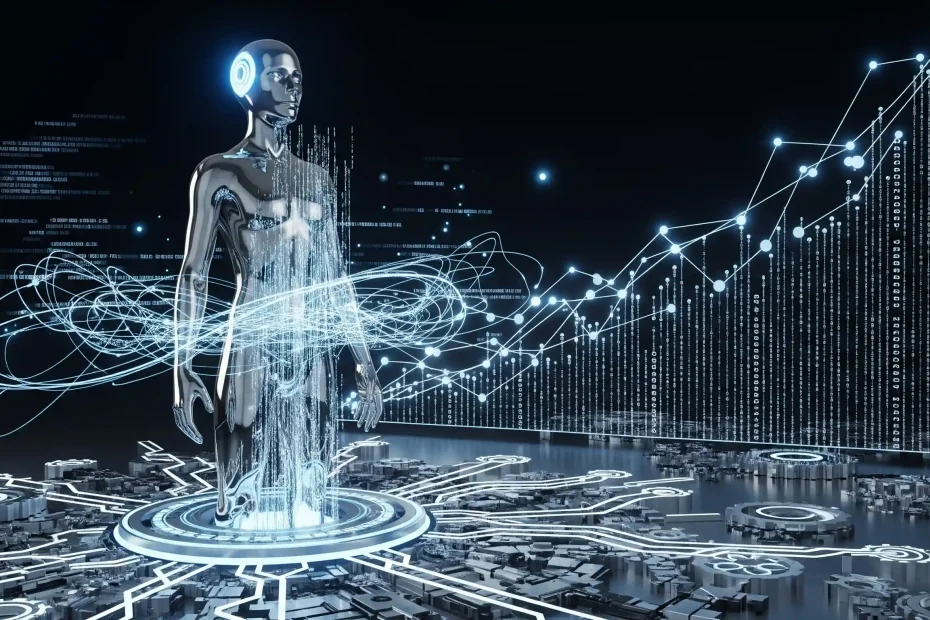Explore low-code AI agent creation, content generation, API integration, and monetization strategies for businesses in the USA. Understand multi-agent systems and performance measurement.
Beyond the Basics: Advanced Insights into AI Agents for Business Growth
In the previous article, we laid the groundwork for understanding AI agents and their fundamental role in business automation. Now, we’ll dive deeper into more advanced aspects, exploring practical implementation, cost considerations, ethical implications, and the exciting potential for monetization. For businesses in the USA seeking a competitive edge, these insights are crucial for leveraging AI agents effectively.
What are some low-code or no-code platforms for AI agent creation?
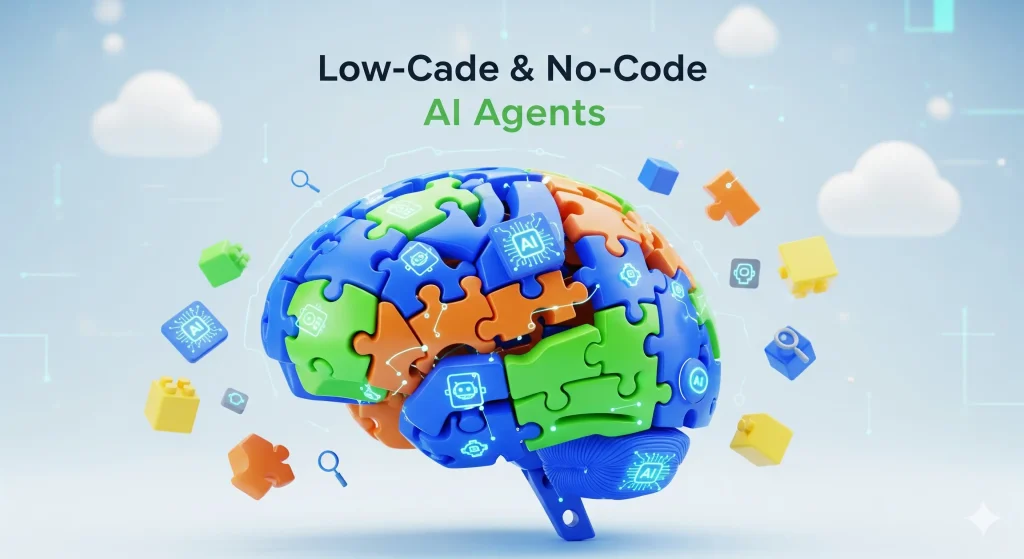
The democratization of AI is largely due to low-code and no-code platforms, making agent creation accessible to a broader audience without extensive programming knowledge. These platforms typically offer drag-and-drop interfaces, pre-built components, and visual workflows.
- No-Code Platforms (e.g., Stack AI, Activepieces): These are ideal for business users who want to build sophisticated workflows and simple AI agents by connecting various applications and services. They abstract away all coding, focusing on logic and integration.
- Low-Code Platforms (e.g., Botpress, Google Dialogflow CX, Microsoft Power Virtual Agents): These provide a visual development environment but also allow developers to inject custom code for more complex functionalities or unique integrations. They offer a balance between ease of use and flexibility, empowering citizen developers and professional developers alike.
These platforms often include features for natural language processing (NLP), intent recognition, and integrations with popular business applications, drastically reducing development time and cost.
How can AI agents be used for content creation or email replies?
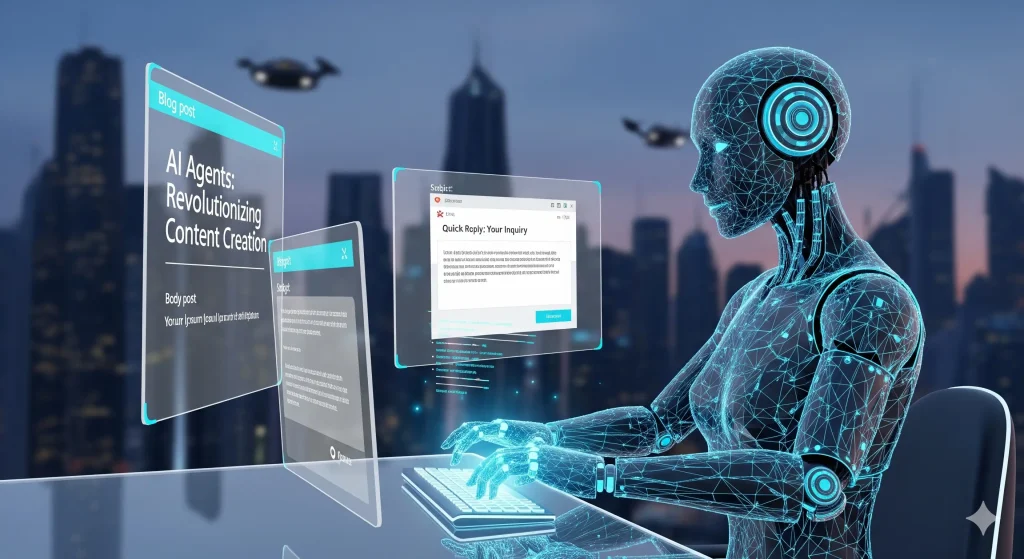
AI agents are becoming indispensable tools for automating and enhancing communication.
- Content Creation: An AI agent can be configured to generate various forms of content. For example, given a set of keywords and a topic, it can draft blog post outlines, social media captions, product descriptions, or even initial versions of articles. It can research information, summarize data, and present it in a coherent narrative style, saving significant time for marketing and content teams.
- Email Replies: For businesses handling a high volume of emails, AI agents can draft personalized and context-aware replies. They can analyze incoming emails, identify the sender’s intent, extract relevant information (e.g., order numbers, query types), and then compose a suitable response. For complex queries, they can draft a response for human review or automatically route the email to the appropriate department. This ensures faster response times and consistent messaging.
Can AI agents connect to APIs or tools like Zapier/n8n/Make?
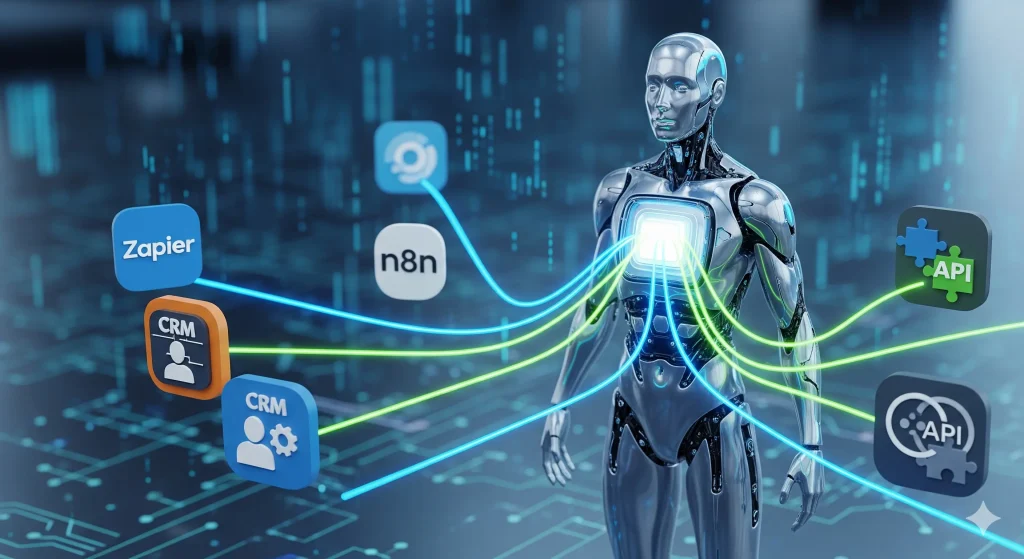
Yes, this is one of the most powerful features of modern AI agents. Their ability to connect to external systems is what truly unlocks their automation potential.
- API (Application Programming Interface) Integration: Most robust AI agent platforms provide mechanisms to connect directly to third-party APIs. This allows agents to send and receive data from virtually any software application that offers an API, such as CRMs, ERPs, accounting software, marketing automation platforms, and custom internal tools. For instance, an agent could use an API to fetch real-time inventory data or update a customer’s record.
- Integration Platforms (Zapier, n8n, Make – formerly Integromat): These low-code/no-code integration platforms act as powerful middleware. AI agents can be configured to trigger actions or be triggered by events within these platforms. This allows agents to seamlessly connect with thousands of popular web applications without writing any code. For example, an AI agent could generate a lead, then Zapier could automatically add that lead to your CRM, send a welcome email via your email marketing tool, and notify your sales team in Slack.
generate a 3d image for my blog banner on topic

Yes, many advanced AI agents are equipped with capabilities to understand and process voice commands, making them highly interactive and accessible.
- Speech-to-Text (STT): The agent first uses STT technology to convert spoken words into text.
- Natural Language Processing (NLP): Once converted to text, NLP is used to understand the intent, context, and entities within the voice command.
- Action Execution: Based on this understanding, the AI agent performs the requested action or provides the relevant information.
This capability is vital for applications like virtual assistants, call center automation, smart home devices, and hands-free business operations, enhancing user experience and efficiency.
What’s the cost of running an AI agent?

The cost of running an AI agent can vary significantly based on several factors:
- Platform Choice: No-code/low-code platforms often have subscription-based pricing (monthly/yearly) that scales with usage (e.g., number of interactions, tasks, or API calls).
- Development & Customization: If you’re building a custom agent, development costs (developer salaries, specialized tools) can be substantial upfront.
- Infrastructure & Hosting: For self-hosted or highly custom agents, costs include cloud computing resources (servers, databases), storage, and networking.
- API Usage: Many third-party APIs have usage-based pricing, adding to the operational cost.
- Data Volume & Processing: The amount of data the agent processes and the complexity of its tasks influence computational costs.
- Maintenance & Updates: Ongoing costs for monitoring, troubleshooting, and updating the agent to ensure optimal performance and security.
While initial setup might have a cost, the long-term ROI often outweighs these expenses due to increased efficiency and reduced human labor.
Can AI agents replace human employees?
This is a common concern, but the reality is more nuanced. AI agents are designed to augment human capabilities, not entirely replace them.
- Automation of Repetitive Tasks: AI agents excel at automating mundane, repetitive, and data-intensive tasks. This frees up human employees from drudgery, allowing them to focus on more complex, creative, and strategic work that requires critical thinking, emotional intelligence, and interpersonal skills.
- Enhanced Productivity: By taking over routine tasks, AI agents enable human teams to be more productive and efficient, leading to higher job satisfaction and better business outcomes.
- New Roles and Skill Sets: The rise of AI agents will lead to the creation of new roles focused on designing, training, monitoring, and managing these agents, requiring a shift in skill sets rather than outright job elimination.
The goal is to create a synergistic workforce where humans and AI agents collaborate, each excelling at what they do best.
What are multi-agent systems in AI?
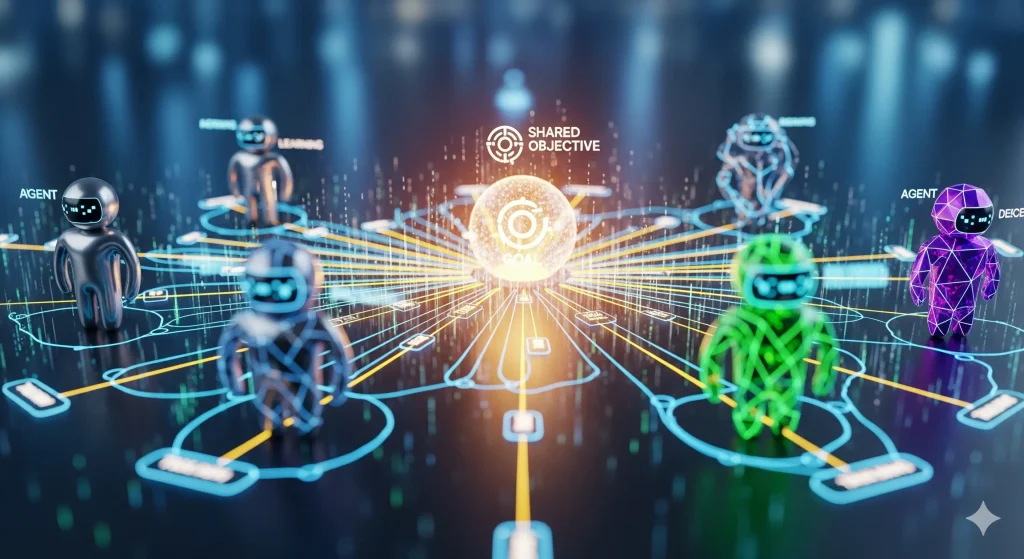
A multi-agent system (MAS) in AI involves multiple autonomous AI agents that interact with each other to achieve a common goal or individual goals within a shared environment.
- Collaboration: Agents can specialize in different tasks and work together. For example, one agent might be responsible for data collection, another for analysis, and a third for generating reports, all contributing to a larger objective.
- Communication: Agents in an MAS need mechanisms to communicate and exchange information, often through shared knowledge bases or messaging protocols.
- Problem-Solving: This approach is particularly effective for solving complex problems that are beyond the capabilities of a single agent or when different perspectives and expertise are required.
Examples include supply chain optimization, complex financial modeling, and even coordinating autonomous vehicles.
How do I measure the performance of an AI agent?
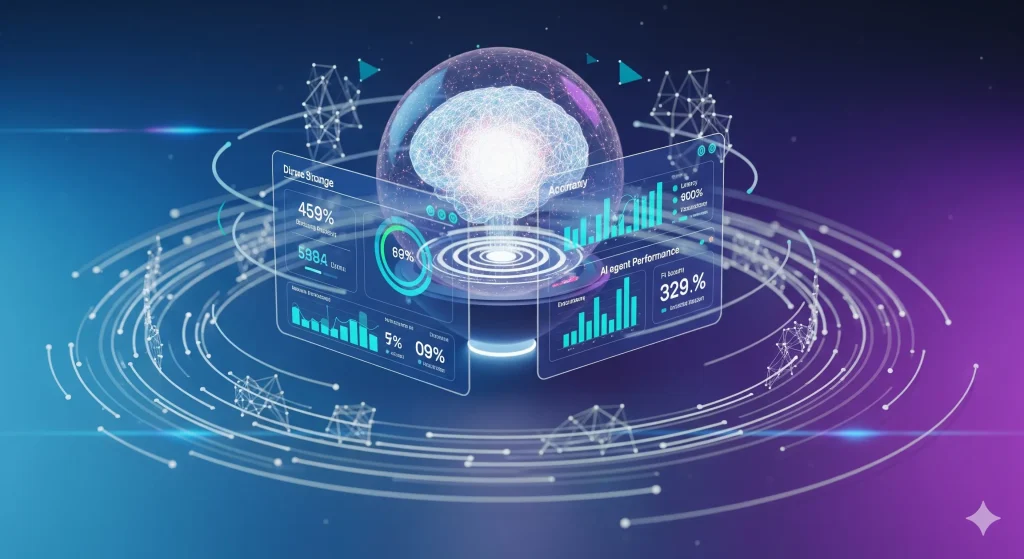
Measuring an AI agent’s performance is crucial for ensuring it delivers expected value and continuous improvement. Key metrics include:
- Accuracy: How often the agent performs tasks correctly or provides accurate information. For content, this could be relevance and factual correctness.
- Efficiency: Time taken to complete tasks, reduction in human effort, or cost savings achieved.
- Completion Rate: The percentage of tasks or interactions successfully completed by the agent without human intervention.
- User Satisfaction (for customer-facing agents): Measured through feedback surveys, sentiment analysis of interactions, or resolution rates.
- Scalability: The agent’s ability to handle increasing workloads or data volumes without significant degradation in performance.
- Error Rate: The frequency of mistakes or instances where the agent fails to perform as expected.
Regular monitoring and analytics dashboards are essential for tracking these metrics and identifying areas for optimization.
What is an autonomous AI agent?
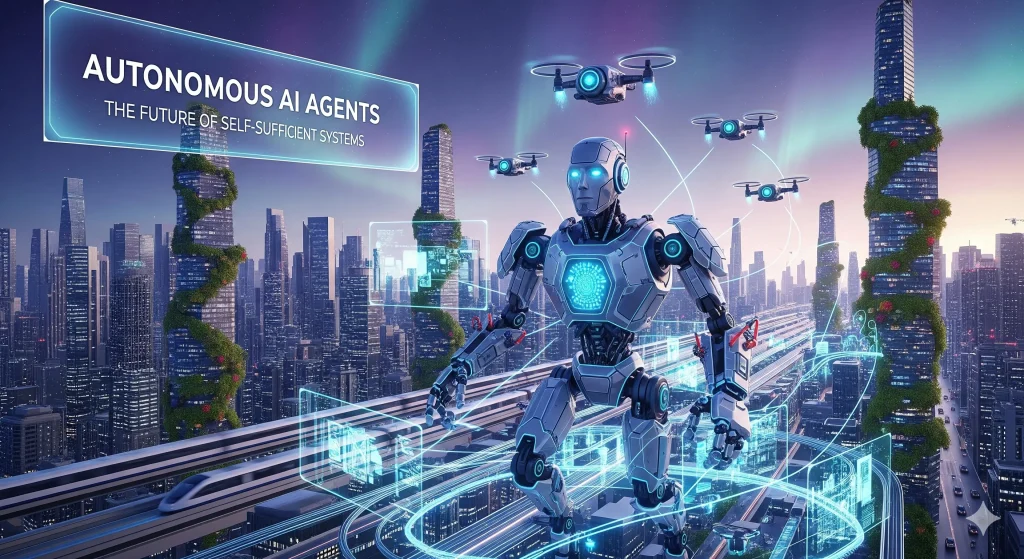
An autonomous AI agent is a type of AI agent that can operate independently, making decisions and executing actions without constant human oversight.
- Self-Directed Goals: It has a defined objective and the ability to formulate a plan to achieve it.
- Perception and Action: It continuously perceives its environment, processes information, and takes appropriate actions.
- Learning and Adaptation: It learns from its experiences, adapts to new situations, and improves its performance over time.
- Minimal Human Intervention: While initially set up and trained by humans, its day-to-day operations require little to no direct human input.
Autonomous AI agents are at the forefront of AI development, promising a future where intelligent systems can manage complex operations with unprecedented efficiency.
Can AI agents be monetized or sold as SaaS?
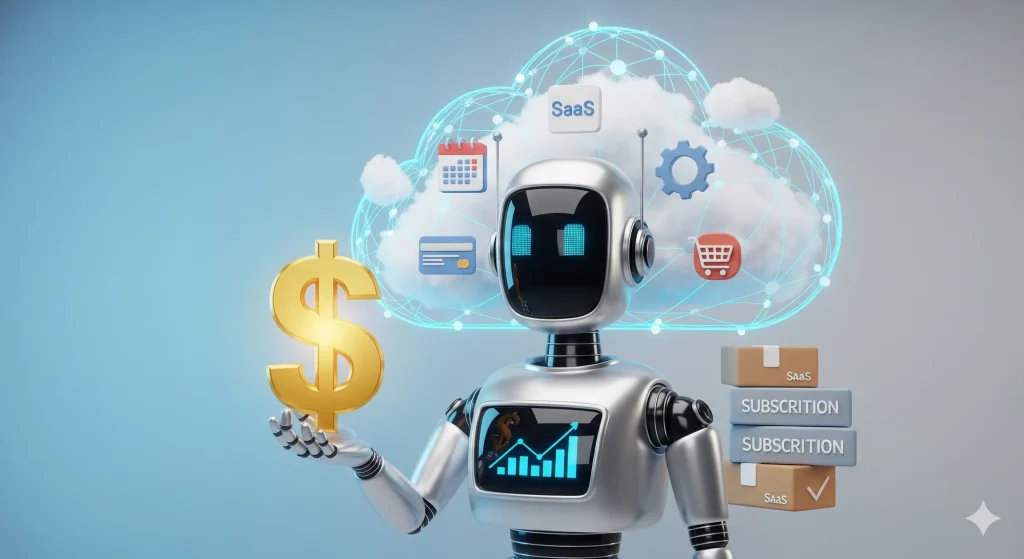
Absolutely! The potential for monetizing AI agents is vast, creating new business opportunities.
- SaaS (Software as a Service) Solutions: Businesses can develop specialized AI agents designed to solve specific problems for a target market and offer them as a subscription service. Examples include AI agents for niche customer support, specialized data analysis, or automated marketing campaign management.
- White-Label Solutions: Companies can build AI agent frameworks and then white-label them for other businesses to customize and use under their own brand.
- Consulting and Implementation Services: As AI agents become more prevalent, there’s a growing demand for experts who can design, implement, and manage these systems for other companies.
- Enhanced Product Features: Integrating AI agent capabilities into existing software products can add significant value, justifying higher pricing or attracting new customers.
The key is to identify a clear problem that an AI agent can solve efficiently and effectively, creating a compelling value proposition for potential customers.
How TDX.ai Can Help You Grow Your Business
At TDX.ai, we are at the forefront of AI agent innovation, empowering businesses in the USA and beyond to harness the full potential of this transformative technology. We go beyond basic automation to build intelligent, autonomous AI agents that drive real business growth.
Here’s how TDX.ai can help you grow:
- Strategic AI Agent Development: We work with you to identify high-impact areas where AI agents can deliver maximum ROI, designing custom solutions that align perfectly with your business goals. Whether it’s enhancing content creation, automating email outreach, or building complex multi-agent systems, we have the expertise.
- Seamless Integration & Connectivity: Leveraging our deep understanding of APIs and integration platforms like Zapier, n8n, and Make, we ensure your AI agents connect effortlessly with your existing tech stack, creating a unified and efficient operational ecosystem.
- Monetization & SaaS Solutions: If you’re looking to develop and monetize your own AI agent products, TDX.ai provides end-to-end support, from conceptualization and development to deployment and scaling as a robust SaaS offering.
- Performance Measurement & Optimization: We implement rigorous performance tracking and continuous optimization strategies to ensure your AI agents are always operating at peak efficiency, delivering measurable results and evolving with your business needs.
Let TDX.ai be your partner in building the future of your business with intelligent, autonomous AI agents. Contact us today to explore how we can elevate your operations and unlock new avenues for growth.
